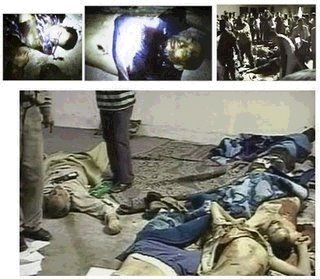Iraqi and American special forces who attacked an insurgent headquarters in Baghdad were not aware that their target contained a mosque until after the battle, America's most senior soldier said yesterday.
General Peter Pace, chairman of the joint chiefs of staff, was responding to 48 hours of unremitting criticism over the controversial raid, which Iraqi radicals claim resulted in the deaths of 21 unarmed worshippers and an imam.
The admission that US and Iraqi forces had entered a compound housing a religious site will stoke Arab fury.
But America's defence secretary, Donald Rumsfeld, branded accusations of a massacre "a lie" and said the operation had resulted in the freeing of a hostage and the capture of weapons including rocket-propelled grenades. "Those are not religious instruments," he commented.
Gen Pace said that the operation had been led by Iraqi special forces, although it included American special forces seeking to track down a Shia terrorist base where kidnap victims were held.
As they approached a large rectangular building they came under heavy fire. "The Iraqi forces themselves went into the main target areas. This is the building inside of which, once they got in there, they found a small minaret and a prayer room … [which] some people are calling a mosque," Gen Pace said.
Pictures issued by Moqtada al-Sadr's radical Shia militia purported to show bodies lying on the floor of the room. Gen Pace said he did not know if American forces had fired during the operation, or whether the dead were killed in the room.
The new version of events appeared to contradict earlier US military accounts that suggested that Sadr's men had moved corpses to make it appear that the Americans had desecrated a religious site. But Mr Rumsfeld was unapologetic about the hesitant and belated account.
"The US government has not got to the point where we are as deft and clever and facile and quick as the enemy that is perfectly capable of lying, having it printed all over the world, and there's no penalty for having lied."
Pictures of the corpses temporarily stalled talks on forming a new Iraqi government.
President Jalal Talabani has demanded that those "responsible" be punished and the governor of Baghdad said he had cut all ties to US forces.
The walled compound is a former Ba'ath party building, known to have been taken over by radical militiamen.
Telegraph
 .
.


